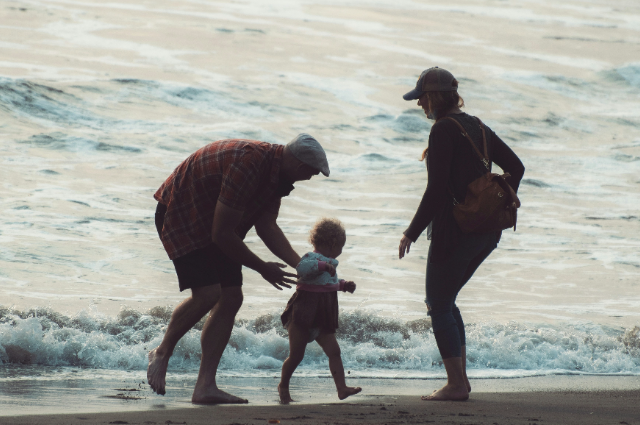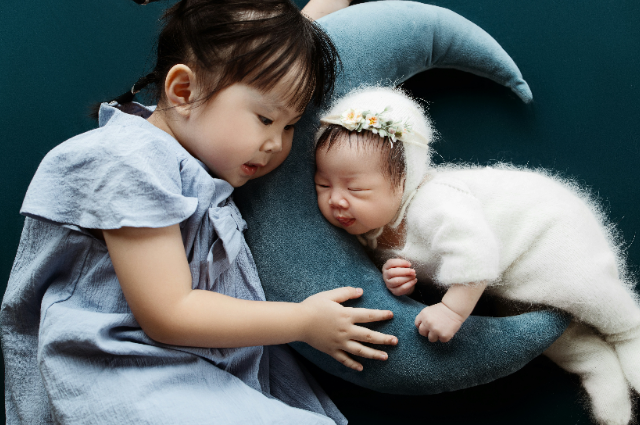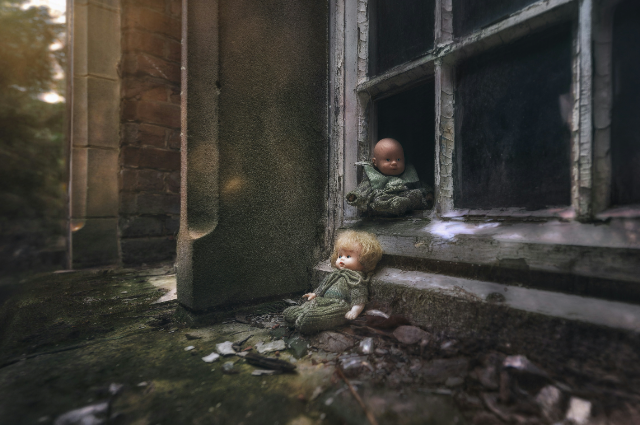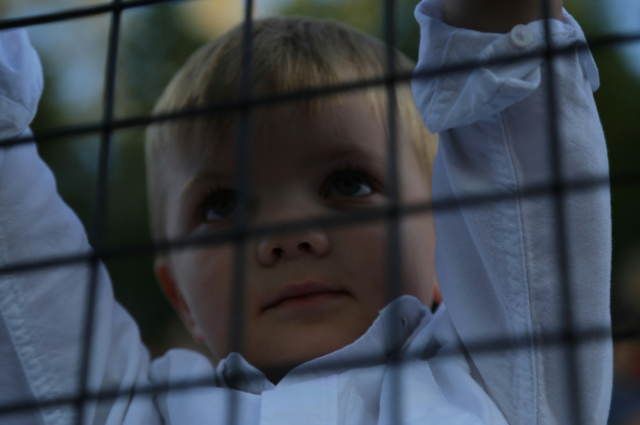
Photo by Tim Mossholder on Unsplash
When I look around, I see children everywhere - playing, laughing, crying, learning, asking endless questions. Some of them are in schools with backpacks almost bigger than their bodies. Some are helping their parents at work or sitting quietly in front of a screen, lost in a world of pixels. These children, so full of energy and emotions, are more than just kids. They are the future citizens of the world. And what kind of future they will bring depends on how we raise them today.
We often forget that children are not just small people. They are human beings in the making. They are not only meant to grow taller or stronger; they are meant to grow wiser, kinder, and more aware.
In Charles Lamb’s “Dream‑Children; A Reverie”, one of the essays from the “Essays of Elia” collection, children are shown as curious little beings - always looking for stories, always trying to understand life in their own innocent way. And while they love to listen to tales about courage and kindness, they are just as scared of the dark corners of life. This mix of wonder and fear is what makes a child both delicate and deep.

Even today, that hasn’t changed.
What has changed, however, is the world they live in.
Children today live in a time of great speed. They know how to swipe on a screen before they can even talk properly. They can find answers to any question on the internet before they learn how to tie their shoelaces. But knowing something is not the same as understanding it. The sad truth is that while children are learning more, they are feeling more confused than ever.
Social media, artificial intelligence, filters, and deepfakes are all part of their daily life now. On the one hand, they can reach out to anyone in the world. On the other hand, they sometimes feel so alone that they don't know whom to talk to. They see perfect pictures online and begin to feel that they are not good enough. Some children even go so far as to take their own lives because they think they can never match the perfect version of themselves they see online.
And when we talk about violence, it becomes even scarier. These same children, who wish for peace, who cry watching videos of war or abuse, often end up being hurt themselves. Some even pick up violent behaviours from what they see, read, or are taught - sometimes becoming the ones who hurt others. It is not because they are bad. It is because they are growing up without proper guidance, support, and love.

So, what makes a child a good citizen when they grow up?
It is not just books, grades, or medals. It’s the values they learn at home and in school. It’s how they are treated by their family, teachers, friends, and even strangers. A child who is heard, understood, and taught with patience is more likely to grow into a person who listens to others, respects different views, and acts with kindness. This is how we prepare future citizens who will build a better society.
Education is important, of course. But education is not only about math or science. It’s also about teaching a child how to deal with failure, how to help someone in need, how to be honest even when it’s hard, and how to stay hopeful in dark times. A well-educated child doesn’t just know facts. They know how to be human.
As Lamb suggested through his essays, children don’t need magical stories to learn about life. Even true stories, if told with care, can light up their minds. So, talk to children. Tell them about the world - its beauty and its sadness. Let them ask questions. Let them feel confused. But be there to guide them, not force them.
A child’s innocence is something precious. But that innocence doesn’t last forever. As they grow, they meet people, face challenges, get disappointed, feel angry, and slowly gain experience. This is natural. But we must make sure that their experience doesn’t harden them. Instead, it should teach them how to balance their hearts and minds.
“It is easier to build strong children than to repair broken men.” ~ Frederick Douglass
This quote says everything. When we give children the right support early on, we save them from pain later. We help them grow into strong, thoughtful adults who don’t need fixing.
Every child has the power to change the world. But they can only do that if we help them become the best version of themselves - not perfect, just real and kind and honest.
“Children are not things to be molded, but people to be unfolded.” ~ Jess Lair
We are not meant to shape children like clay. We are meant to open them up gently, help them see their true selves, and support them as they grow.
Now the question is, how do we do that?
Here are some simple suggestions:
- Listen more, talk less – Children often have thoughts they don't know how to explain. If we keep interrupting or correcting them all the time, they will stop sharing. Just listen. Sometimes, that’s all they need.
- Teach by doing – If we want them to be respectful, we must show respect. If we want them to be honest, we must be honest ourselves. Children learn by watching us more than by what we tell them.
- Let them fail – It’s okay if a child doesn't win every time. Failure teaches more than success. Let them know that making mistakes is part of learning.
- Keep screen time in check – Too much technology can dull their thinking and harm their emotions. Make space for real conversations, playtime, books, and nature.
- Talk about feelings – Many children don’t know how to talk about sadness, fear, or anger. Encourage them to name their feelings and not hide them. This builds emotional strength.
- Be patient – Every child is different. Some are fast learners. Some are not. Some are quiet, some are loud. Understand them instead of comparing.
- Encourage questions – Children are curious. Don’t brush off their “whys” and “hows.” Even if you don’t know the answer, search together.
- Celebrate effort, not just results – Praise the hard work, not just the scorecard. This helps children focus on doing their best rather than just winning.
- Teach kindness – Ask your child to share, help others, speak gently, and stand up for what’s right. These are lessons no textbook can teach.
- Protect, but don’t cage – Children need freedom to grow. Keep them safe, but don’t stop them from exploring or making their own small decisions.

Photo by Roger Skibowski on Unsplash
If we follow even a few of these steps, we can shape children into confident, caring individuals. And that’s what society needs - not just intelligent minds, but also big hearts.
In the end, every child is a mirror of what we give them. If we give them love, they will learn to love. If we put pressure, they will break. If we give them hope, they will fly.
So let’s not just think of them as children. Let’s see them for what they truly are - the future citizens who will shape the world we live in tomorrow. Let’s help them grow into people who don’t just live in society, but live for society.
Because when a child is raised right, they don’t just grow up - they grow good. And that goodness is what the world needs most.
